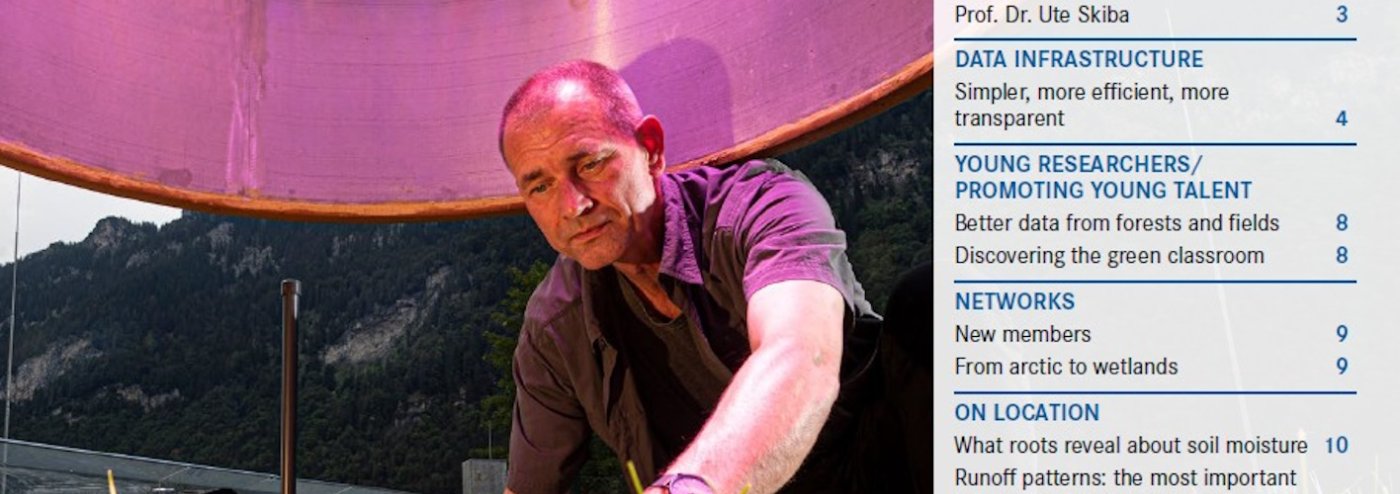
TERENO-Newsletter 3-2024
The technical team at the Institute of Meteorology and Climate Research (IMKIFU) at the Karlsruhe Institute of Technology is characterized by a special feature: It does not consist of technicians. Instead, the team at the Campus Alpin in Garmisch-Partenkirchen is made up of five university graduates, some of whom have also completed vocational training. Young people who are doing a voluntary ecological year (FÖJ) at the IMK-IFU provide valuable support in maintaining the measuring equipment. The technical team takes on two people every year.
The range of activities is diverse – not only because the locations of the measurement sites range from the foothills of the Alps to high up in the mountains. In addition to everyday tasks such as maintaining and repairing equipment and calibrating sensors, the team also carries out accompanying investigations such as determining biomass
or sampling soil composition. Quality control and processing of the raw data is also carried out by the technical team in close cooperation with the IMK-IFU data initiative.
“We therefore have no “standard working day”, says Dr. Ingo Völksch. The geoscientist forms the “team EC” together with environmental engineer Stefan Sellmaier,
who studied automotive mechatronics after completing his training as an automotive mechatronics technician. Their main task is the operation and maintenance of the climate
and eddy-covariance measuring stations in the TERENO's Pre-Alpine observatory.
Hydrologist Dr. Benjamin Fersch looks after a wide variety of sensors from the Zugspitze summit to the lowlands of the Alpine foothills, including the cosmic-ray neutron sensor network, the water levels and the wireless soil moisture network. For snow balance measurements, he sometimes has to go on ski or snowshoe tours lasting several hours. “Fortunately, calibration here only makes sense during constant conditions and good weather,” says Fersch.
Carsten Jahn, a trained electrician and environmental engineer, looks after the weather stations and devices for measuring precipitation. He is also in demand when work at height is required, for example on masts. Biologist Dr. Rainer Gasche is a scientific engineer responsible for fully automated and partly robot-supported measuring equipment. This includes lysimeters, for example, which record the parameters and processes of the water cycle and the exchange of greenhouse gases between the soil and the atmosphere.
What all team members are currently working on: upgrading the old system to make it future-ready. After more than 10 years in operation, some of the sensors and measuring
devices are worn out and and data acquisition and transmission systems are no longer state of the art. Going forward, the technical team will surely never be short of work.
TERENO-Tech_IMKIFU_Newsletter_2024-3_eng.pdf
TERENO-Newsletter_2024-3_eng.pdf (complete issue)